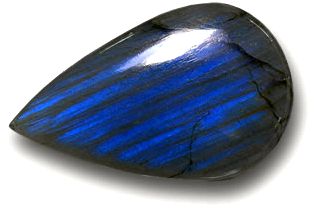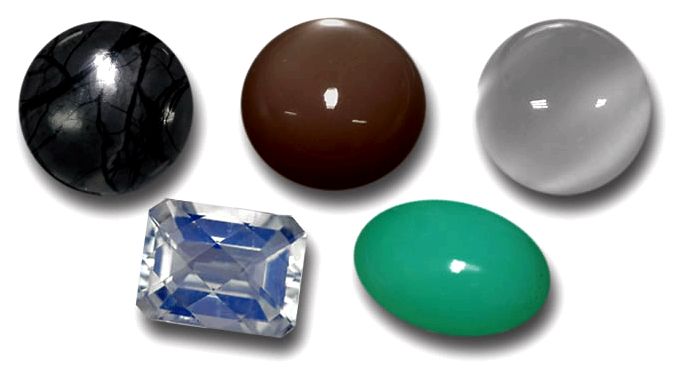Navigation article:
- Where’s Granite Found?
- How Lengthy Will My Gemstone Last?
- What’s Quarrying?
- Is Gemstone and Engineered Stone ( Quarta movement ) exactly the same factor?
- Is Quartzite just like Quarta movement?
- How Come the Texture and color of Gemstone Vary?
- What Additional Care Does Gemstone Require?
- How Frequently Should i Seal my Contertop?
- What Exactly Are Samples?
- Exactly what is a Backsplash?
- I Heard Gemstone Harbors Bacteria. Could It Be True?
- My Stone Contractor Recommends a different sort of Stone in my Project?
- Just How Much Will a Granite Countertop Cost?
- Is Gemstone great for Use At Home?
- What Finishes is Stone Obtainable in?
- Does Stone Stain?
- How come Certain Gemstones Appropriate for Kitchen and Bath Flooring?
- How Come Certain Gemstones Motre Simple for Use in the kitchen area Tops?
- What’s the Distinction Between Marble & Granite Countertops?
- What Gemstones Would You Recommend for Kitchen Countertops.
- How Come My Granite Stain?
- Can One Get Stains From My Stone?
- Would You Recommend Polished Floors in Commercial Spaces?
- How Do You Make Certain The Stone I Specify Is Going To Be Available If Needed?
- So How Exactly Does an Impregnator Reduce Staining?
- When Making Any Project, Are You Able To Mix Stone Along With Other Materials?

ANSWER: Gemstone can be found in countries all around the
world… from Angola to Zimbabwe. With respect to the kind of stone,
it’s within our planet, mountain tops, low laying areas for example
plains, or former ocean beds in which the assortment of sediment has
happened.
Where’s Granite Found?
Granite is quarried in the earth with specialized
equipment and machinery. It’s found around the globe. A couple of
parts around the globe where granite is quarried: Argentina, South america,
Canada, China, Egypt, Finland, India, Italia, Norwegian, Portugal,
Saudi Arabia, Nigeria, The country, Sri Lanka, Norway, Ukraine, USA,
Zambia, Zimbabwe.
How Lengthy Will My Gemstone Last?
Take proper care of your Gemstone and it’ll continue for
generations. Some Natural Gemstones happen to be over 2500 million
years of age when quarried in the earth.
What’s Quarrying?
A quarrier extracts gemstone from the quarry. A quarry
may be the location in which a deposit of stone is obtained from the
earth. Quarrying may be the stone extraction process.
Is Gemstone and Engineered Stone ( Quarta movement ) exactly the same
factor?
No. Natural Stone is really a product of nature. It’s created over
countless years within or on the earth’s surface through changes
in pressure and heat. It’s quarried in the earth in blocks of
stone.
Engineered stone is manufactured. It’s produced in factories
and consists of crushed gemstone after which bound together by
acrylic or polyester resins.
Is Quartzite just like Quarta movement?
No. Quarta movement is engineered (man-made) stone, which often
contains 90-97% of gemstone. The remainder is colorants, glues and
other binding chemicals. Quartzite is 100% gemstone, found as
every other gemstone.
How Come the Texture and color of Gemstone Vary?
Gemstone is really a product of nature and susceptible to
variations. Characteristics for example veining and nutrients
will affect each bit. Stone won’t change from quarry to
quarry but from stone to stone. Natural stone is exclusive… no
two gemstones are alike.
What Additional Care Does Gemstone Require?
Use a sealer as needed and clean your stone regularly.
Avoid using acidic or abrasive cleaners. Visit our Care &
Maintenance page.
How Frequently Should i Seal my Contertop?
This relies around the sealer you select. Some sealers need
to become applied every 6 several weeks to at least one year. Others continue for 4-five years,
or perhaps every ten years!
What Exactly Are Samples?
Granite samples are small tiles accustomed to compare colors and
patterns.(much like a color chart except the stone tiles are
bigger) Small bits of granite that are remaining out of your job
may also be known as samples. You might take an example piece
along with you shopping to assist match curtains, knobs, rugs, or whatever
else you are able to consider for your granite countertop.
Exactly what is a Backsplash?
Backsplash may be the area behind and above your countertop.
It prevents water and oil from splashing on your walls
(sheetrock).
I Heard Gemstone Harbors Bacteria. Could It Be True?
Today’s consumer is provided an array of surfacing
materials to be used in countertop applications. Once operating,
these countertop surfaces is going to be uncovered to a number of
contaminative substances. The important thing safety issue towards the consumer is
the quality of cleanability from the surface material, that’s, how
easily any contaminants can be taken off using normal and reasonable
cleaning practices.
The next study by Dr. O. Peter Snyder from the Hospitality
Institute of Technology and Management www.hi-tm.com used E. coli
bacteria since it’s contaminating agent. The findings from the report
show significant cleanability benefits of natural granite
countertops over almost every other generally found countertop surface
materials.Don’t think all you hear. Browse the outcomes of
this research on countertop sanitation, E. coli as well as other countertop
surfaces. Decide upon yourself.
My Stone Contractor Recommends a different sort of Stone in my
Project?
Usually your contractor is only going to recommend another
stone when the one you select is unacceptable for the project… too
delicate or hard to utilize.
- Obtain a second opinion. It’s essential that you get that which you
like. Should you love a specific stone and may care less
concerning the maintenance or possible headaches, opt for that stone.
Just know you will need to sign off onto it.
- Select a different stone. Your fabricator will be able to
advise a similar stone what’s best suited to your
project.
Just How Much Will a Granite Countertop Cost?
This is among the most faq’s. And,
the solution varies. Stone is generally quoted through the sq . ft . and
the price depends upon numerous things:
- Your physical location.
- Actual stone you decide to use.
- Special edges, full backsplashes, and arches or radius’ increase
the price.
- Utilizing an under mount sink as opposed to a stop by sink entails
more polishing therefore, this increases the cost.
Is Gemstone great for Use At Home?
Yes. Gemstone is material you can utilize in most regions of
your house. Knowing the different sorts of stone, their finishes and
applications will help you make an educated decision which
stone is right for any project you might.
What Finishes is Stone Obtainable in?
There are lots of finishes and possibilities. Listed here are
probably the most broadly used:Gemstone is extremely adaptable and could be
processed in a number of finishes to attain a specific effect.
There are lots of finishes and possibilities. Listed here are probably the most
broadly used ones:
Polished
A higher gloss surface. Less water absorbent than honed and
textured finishes.
Honed
Honing removes the gloss in the surface, developing a soft matte
look. Surface remains smooth to touch.
Brushed
Number of methods are utilized chemical (acidity wash) or mechanical
to attain a textured surface.There are various amounts of
brushing – in the subtle satin or vellutato finish to much deeper
brushing, developing a different aftereffect of texture.
Flamed
Blow torched for any rough textured surface, appropriate for
exterior applications. Surface is generally brushed after flaming,
when employed for interior application.
Tumbled
Slightly tumbled to attain rounded edges and surface that’s
less smooth as honed.
Does Stone Stain?
Yes. Natural stone can stain and etch (a monotonous place in
a elegant or honed surface), including GRANITES. Sealers DO
NOT prevent staining because they are a moisture barrier only, yet
they will assist you to provide you with a tiny bit of time towipe up spills.
It’s extremely difficult to avoid staining or etching, but
seriousstains could be almost completely removed and then any etching can
be resurfaced if either is really annoying for you.
How come Certain Gemstones Appropriate for Kitchen and Bath
Flooring?
In selecting a stone you should consider the way the
stone can change with time. Most of the more porous gemstones will
stain easily and regrettably, every impregnators might not
be great enough. If the aged look is exactly what the consumer wants, then
any limestone is going to do.
How Come Certain Gemstones Motre Simple for Use in the kitchen area
Tops?
The solution is based on the main difference between your fundamental stone
groups. The main difference comes from caffeine composition of
various stone groups – "carbonates" and "silicates". Carbonates are
acidity sensitive along with a silicates aren’t. A silicate, like granite,
for instance, doesn’t respond to acidity. When we have a lemon (citric
acidity), something found regularly within our kitchens, and squeeze the
juice to the stone, nothing happens. When we go ahead and take same lemon
and squeeze the juice onto a carbonate, for example marble, the stone
begins to dissolve immediately. Acids is going to do more harm to a
polished stone a honed or matte finish. Both etch equally, but
it is simply more noticeable on polished gemstones.Although, if correctly
sealed and maintained marble is qui Do this test yourself. That’s
not saying that marble can’t be employed for countertop application –
you just need to be aware of details and be ready for more
maintenance, for example frequent sealing. Finally, among the great
reasons for stone is that you can usually restore the stone to the
original beauty.
What’s the Distinction Between Marble & Granite
Countertops?

The appearance and physical characteristics. The constant maintenance and proper care of the
gemstones may also vary. Marble is softer and much more porous and it’ll
etch and stain simpler. Marble is much more delicate gemstone when
when compared with granite. Lots of people prefer marble, because of its veiny
exotic look and insufficient grains.If you like the marblesque look
and also steer clear of the care and maiontenance issues involved
with marble – we advise Quartzite. Quartzite has got the aesthetic
look of Marble, however the characteristics of Granite so far as
hardness, staining and etching. Actually, Quartzite is harder than
Granite.
What Gemstones Would You Recommend for Kitchen Countertops.
Each client has different preference and ability to tolerate stone
maintenance. Some clients prefer Granite, others Marble, Limestone,
Soapstone or Quartzite. In the previous subject, we all know marble and
limestone will etch. More dark gemstones etch more noticeably. Many will
be also more likely to stain, although they may be impregnated
(sealed) to enhance performance – the denser gemstones the less it
stains. What one should consider when choosing an all natural stone
for kitchen tops is Marble & Limestone aren’t for everyone –
they’ve alkaline composition and can communicate with common
household acids and etch.Many eco-friendly marbles make good kitchen
counters – mainly since they’re not the case marbles. These
wonderful vegetables are gemstone, although not calcium or magnesium
carbonate, as with marble, but instead magnesium silicate
(serpentine).Pure serpentine isn’t acidity sensitive, therefore there
isn’t any etching. You need to be careful – not every vegetables are pure
serpentine. so make sure to ask us first.
How Come My Granite Stain?
Remember, most are porous, particularly the popular swirl
varieties. These swirl types are frequently not really true granites (more
artistic license). Geologists make use of the term gneiss. Gneiss is
usually made of the identical material components as granite, just the
stone cools more rapidly within the earth’s crust. Their swirls still
show the movement from the gemstones active molten history. The
important part is the fact that these gemstones, with smaller sized crystals, are
more porous than granites with large crystals. Impregnators are
required to reduce staining.
Can One Get Stains From My Stone?
We rarely meet a stain that can’t be removed. While this can be
an exaggeration, there exists a very good history. Removing a
stain is really a three-part process, the very first stage involves identifying
the stain, the 2nd stage involves loosening or dissolving the
stain, the 3rd stage involves lifting the stain in the
stone.
We do not suggest you receive too sophisticated if you’re carrying this out
yourself. Before with help, consider using a simple without color dish
washing detergent
Would You Recommend Polished Floors in Commercial Spaces?
There’s two factors when indicating polished stone on
commercial floors – slip resistance and putting on from the polish.
Regarding slip resistance, polished floors generally don’t pass
industry standards testing for slip resistance, unless of course given
certain floor finishes designed for that purpose. Regarding put on, all
polished gemstones will forfeit their polish unless of course there’s a continuing
maintenance program including using chemical finishes that
will safeguard the conclusion. This is often costly with time, and
require stripping and reapplication every so often. Within our
opinion, when the owner uses a polished finish floor, it’s
essential that you discuss the constant maintenance needs before
indicating.
How Do You Make Certain The Stone I Specify Is Going To Be Available
If Needed?
Knowing once the stone is needed, you need to communicate
this towards the stone supplier. A reliable supplier provides you with
straight answers concerning the stone’s availability. If this sounds like
a quick track job, and also the materials are available, we’ll place the
material on hold for any month until your final commitment is created.
Communication between your specifier and also the contractor or
owner is frequently important to meet up with job delivery
needs. If material must originate from overseas, we generally
assume that it’ll take around per month to get at our warehouse. If
it requires the factory one or two several weeks to create the stone to
specifications, a lead-duration of 2 to 3 several weeks could be
common. This can be a typical availability situation, but won’t be
the situation in most situations.
So How Exactly Does an Impregnator Reduce Staining?
The solid a part of silicone impregnators are microscopic balls of
silicone that attach themselves towards the crevices within the stone.
These balls of silicone are negatively billed, meaning they
repel one another so they cannot combine in a single big ball of
silicone. After they are affixed to the stone, these balls
be a permanent area of the stone, and provide out a magnetic
charge, which creates a hidden "umbrella" between your balls.
These microscopic umbrellas behave as shields whenever a much bigger drop
of liquid arrives at them. They contain the liquid up, and stop it
from penetrating the stone.
The liquid area of the impregnator, is generally either mineral or
water, and functions because the carrier which brings the silicone to
the stone and it has it penetrate deep in to the stone. Probably the most
effective impregnators use mineral spirits and also have the tiniest
particles of silicone.
When Making Any Project, Are You Able To Mix Stone Along With Other
Materials?
Absolutely! The options are endless. You are able to incorporate
gemstone with ceramic, porcelain, glass, and terracotta.
Whatever you can consider, even mixing various kinds of natural
gemstones together.
Resourse: http://marble-granites.com/resource-center/stone-selection/
 Stone direct services
Stone direct services